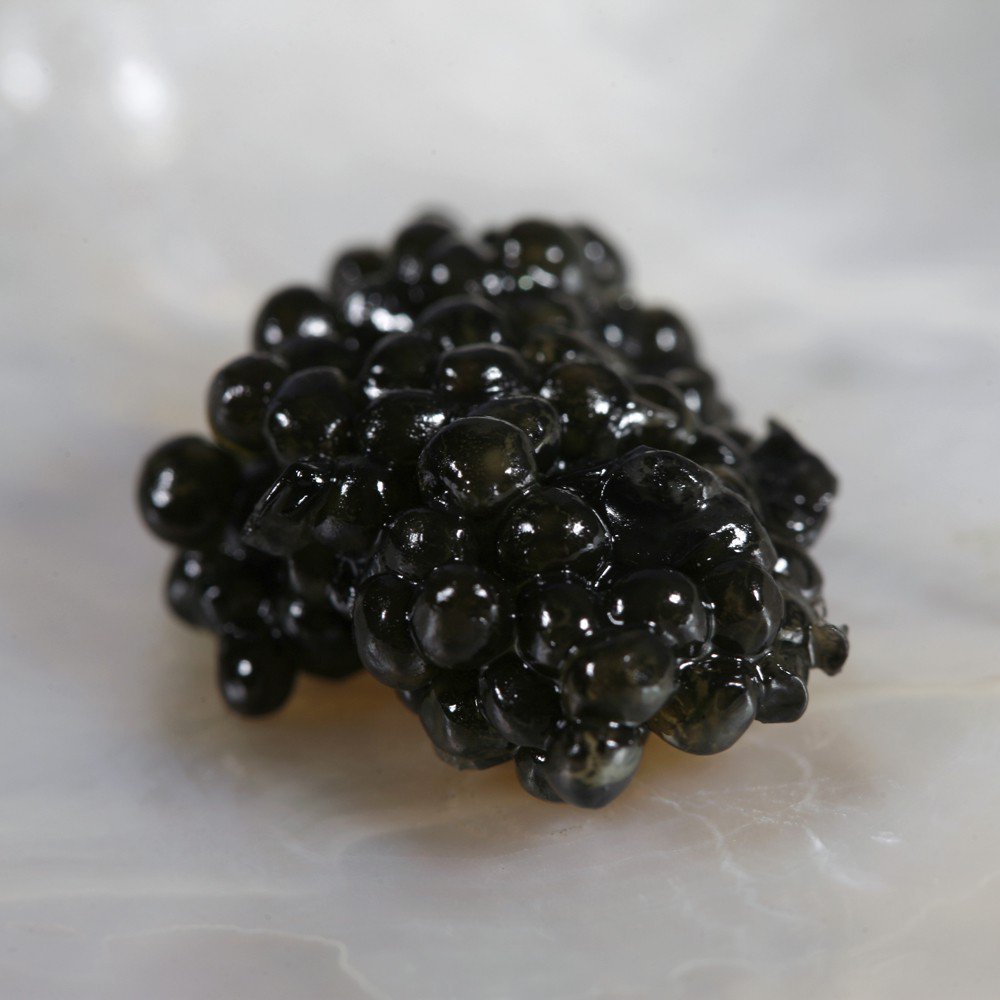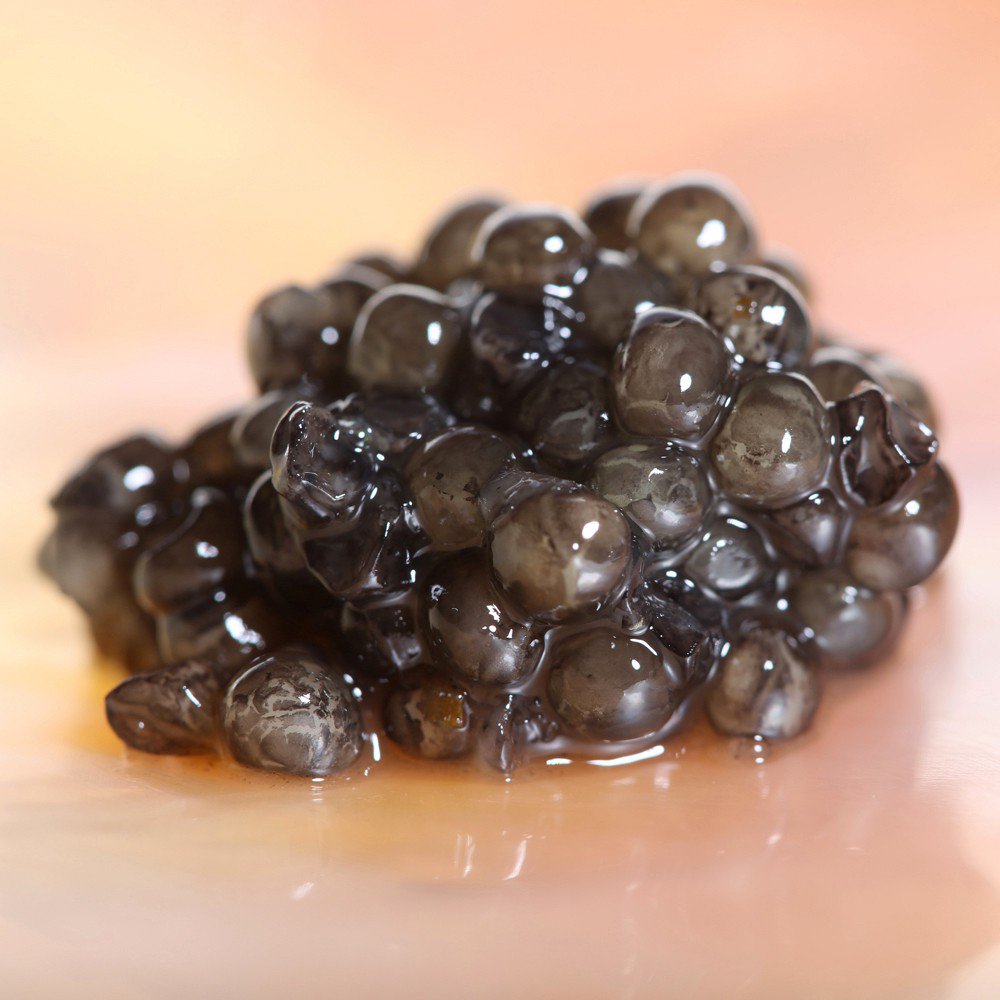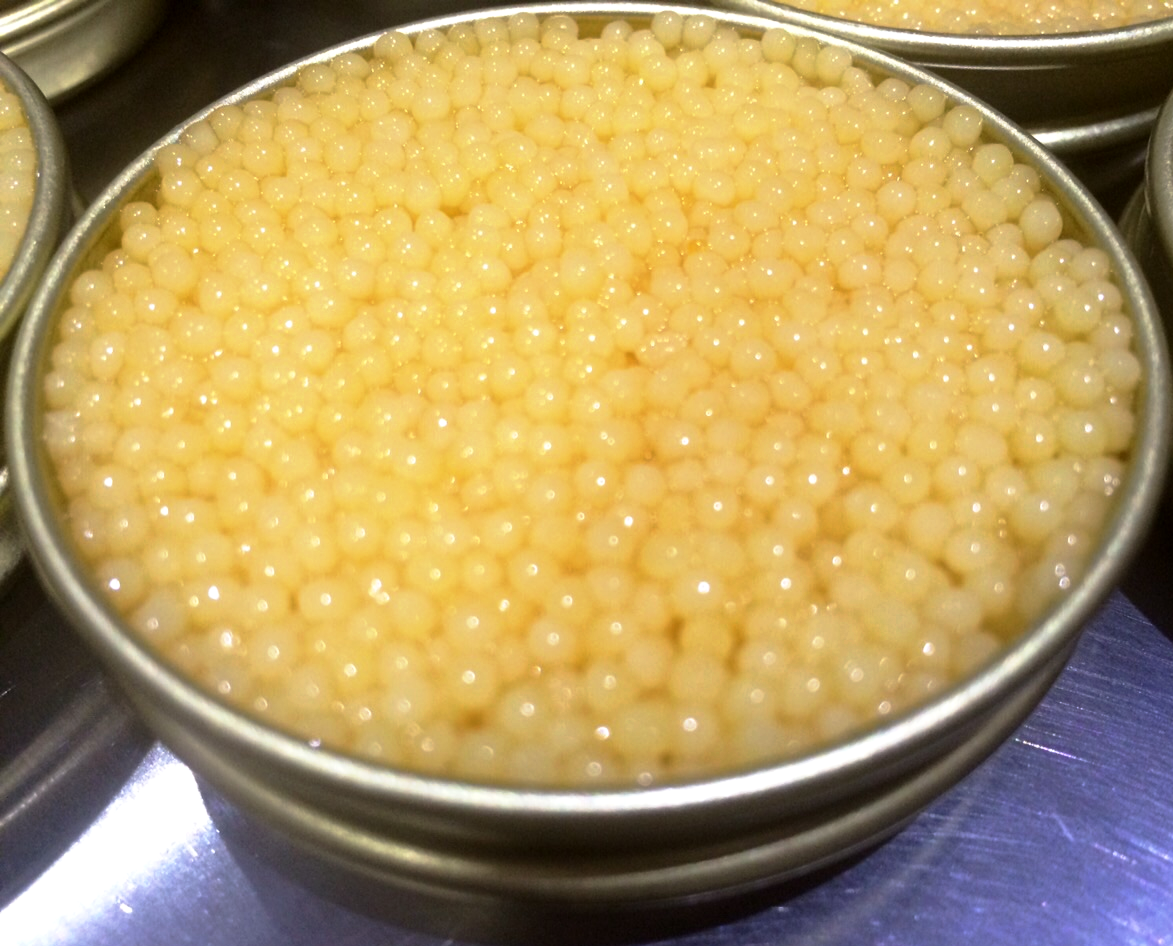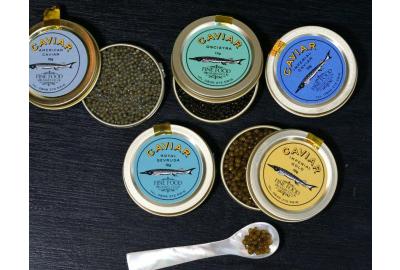Caviar is a delicacy that has been enjoyed for centuries. The caviar world possesses a certain mystifying quality which can sometimes be a bit intimidating for the uninitiated. We often encounter customers who are eager to embark on their own caviar journey, but are simply unsure of where to start.
This feature aims to help you navigate the caviar world with confidence. Caviar is a term that refers to the lightly-salted eggs of sturgeon, an ancient scaleless family of fish. Within this there are three main species that are most commonly used to produce caviar: beluga, oscietra and sevruga. Salmon roe and tobiko are not true caviars, but they are often referred to as ‘alternative caviars’.
Sturgeon caviar is graded on size of egg, flavour, colour, and age. Like a fine wine, the more mature the caviar the more complex its flavour. Many feel caviar is an acquired taste so we recommend starting with the most accessible varieties before moving on to the more exclusive variations. It is important to note that the price of caviar reflects its rarity, not necessarily its flavour.

The perfect place to start is with one of two caviars: oscietra and sevruga. Oscietra is a delightful caviar with medium-sized eggs, which are dark to light grey in colour and have a mild, creamy taste. Its remarkably delicate flavour and firm texture makes it very accessible; oscietra allows you to enjoy the light popping sensation of the eggs on the roof of your mouth without an overwhelming saline flavour of the sea.
Imperial Oscietra offers a similar experience but its higher grade indicates a slightly more complex flavour with an unusually nutty after-taste that makes it quite moreish.
Sevruga caviar is also a good start, especially for those who are more sensitive to textures. The smallest eggs are those of sevruga as they are harvested from the youngest fish, making for a very smooth and silky caviar. But do not let their size fool you, sevruga can pack quite a flavoursome punch.

After sampling the introductory caviars you might want to move onto something more exclusive, such as imperial or imperial gold. You could also test your taste buds with the famous beluga caviar. Beluga sturgeon are found in the Caspian sea and produce one of best known caviars around the world. With some of the largest eggs in the business, beluga is considered one of the top-of-the-line caviars. The eggs are very firm and release a dramatic burst of flavour when popped on the roof of the mouth.
Huso huso beluga is one of the most prized caviars on the market. With 3mm eggs it is the largest caviar available and also one of the most expensive. Due to its size and high quality it has been nicknamed the King of Caviars by connoisseurs. The eggs have a steely blue appearance and the taste is an exceptionally rich, buttery and salty delight.

The final caviar to explore is in a league of its own: golden almas. The surreal glittering amber pearls that make up a tin of golden almas are albino sturgeon eggs, which are most often found at the base of the gills while harvesting.
They are the most sought after caviar in the world due to their extreme rarity. Only one in 6,000 sturgeon carry this magnificent yellow roe, which makes almas the most exclusive caviar available and highly prized by caviar lovers all over the world. Along with its alluring glimmer, golden almas has a deliciously rich and buttery flavour, similar to beluga.
For many, it is a once in a life time treat found somewhere on there bucket list between alba white truffles and the Japanese blowfish, fugu. So bring out the mother of pearl spoons and get sampling!
Remember there is much more to caviar than a garnish for blinis. Get creative and find new ways of appreciating this deliciously savoury indulgence. Shop for caviar here.








